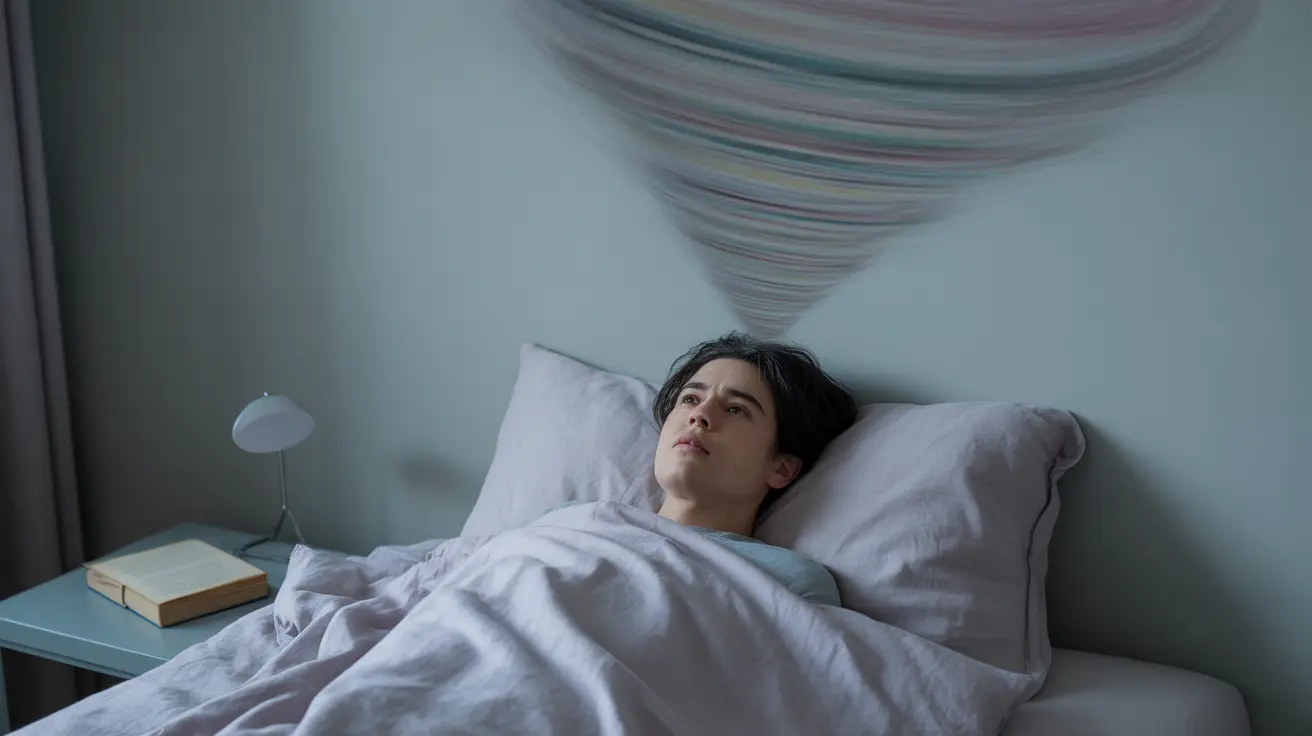The connection between obsessive-compulsive disorder (OCD) and insomnia presents a challenging cycle that affects millions of people worldwide. When intrusive thoughts and compulsive behaviors collide with the need for restful sleep, both conditions can significantly impact a person's quality of life.
Understanding how these conditions interact and learning effective management strategies is crucial for those affected by both OCD and sleep difficulties. Let's explore the relationship between these conditions and discover practical solutions for better sleep.
The Impact of OCD on Sleep Patterns
OCD can severely disrupt normal sleep patterns through various mechanisms. Nighttime rituals and compulsions often delay bedtime, while racing thoughts and anxiety make it difficult to relax and fall asleep. Many individuals find themselves caught in a cycle of checking behaviors or mental routines that prevent them from settling into sleep.
Common sleep-disrupting OCD patterns include:
- Repeated checking of locks, alarms, or appliances
- Intrusive thoughts about safety or contamination
- Mental reviewing of daily events
- Symmetry-related compulsions that must be completed before sleep
- Ritualistic cleaning or organizing behaviors
The Bidirectional Relationship
The relationship between OCD and insomnia operates in both directions, creating a challenging cycle. When OCD symptoms intensify, sleep quality typically deteriorates. Conversely, poor sleep can exacerbate OCD symptoms, making them more difficult to manage during waking hours.
How Sleep Deprivation Affects OCD
Lack of quality sleep can lead to:
- Increased anxiety and stress levels
- Reduced emotional regulation
- Difficulty controlling obsessive thoughts
- Weakened resistance to compulsive behaviors
- Impaired cognitive function and decision-making
Treatment Approaches for OCD-Related Insomnia
Behavioral Interventions
Several evidence-based behavioral strategies can help manage both conditions:
- Cognitive Behavioral Therapy for Insomnia (CBT-I)
- Exposure and Response Prevention (ERP) therapy
- Sleep hygiene improvement techniques
- Mindfulness and relaxation practices
- Structured bedtime routines
Medication Management
When necessary, healthcare providers may recommend medications to address both conditions. This might include selective serotonin reuptake inhibitors (SSRIs) for OCD symptoms, combined with short-term sleep aids when appropriate. However, medication should always be prescribed and monitored by a qualified healthcare professional.
Creating a Sleep-Friendly Environment
Establishing an environment conducive to sleep is crucial for managing OCD-related insomnia:
- Keep the bedroom cool, dark, and quiet
- Remove triggers that might prompt checking behaviors
- Maintain a clutter-free space to reduce anxiety
- Use comfortable bedding and pillows
- Limit exposure to blue light before bedtime
Frequently Asked Questions
How does obsessive-compulsive disorder (OCD) cause insomnia and affect sleep quality?
OCD can cause insomnia through persistent intrusive thoughts, anxiety, and compulsive behaviors that interfere with the normal sleep-wake cycle. Evening rituals and checking behaviors can delay bedtime and make it difficult to relax enough for sleep.What treatment options are effective for managing both OCD and insomnia symptoms together?
A combination of cognitive behavioral therapy, exposure and response prevention therapy, and sleep hygiene practices often works best. Some patients may also benefit from medication prescribed by their healthcare provider.Can poor sleep make OCD symptoms worse, and how does this cycle work?
Yes, poor sleep can intensify OCD symptoms by reducing emotional regulation and cognitive control. This creates a cycle where worsened OCD symptoms further disrupt sleep, continuing the pattern.What behavioral strategies can help improve sleep for someone with OCD-related insomnia?
Key strategies include establishing consistent bedtime routines, practicing relaxation techniques, implementing proper sleep hygiene, and working with a therapist on specific OCD-related sleep disruptions.Are there specific medications recommended for treating insomnia in people with OCD?
While SSRIs are commonly prescribed for OCD, additional sleep medications might be recommended for short-term use. The specific medication plan should be determined by a healthcare provider based on individual needs and circumstances.




